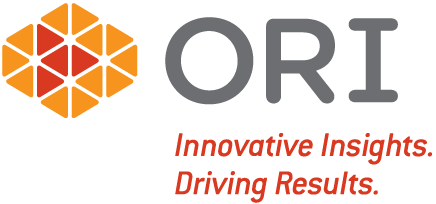Lessons on How to Build—Not Badger—Your Customer Base
By Lesley Boucher, Vice President of Customer Experience, ORI
For many of us with a passion for customer experience, we work every day to answer the question: “How do we strengthen existing customer relationships and, as a result, accelerate growth?” This seemingly simple question is tricky to answer for several reasons. For example, take the issue of customer feedback and market research. We all understand that we need data and insights to inform our decision making with facts, ensuring we can optimize operations to meet customer requirements and market demand.
Gathering those insights through surveys and focus groups is a time-honored mainstay for research companies like mine. Yet there is a challenge we all face: How do we gather the information leadership needs in order to build the customer base without badgering those customers in the process of doing so?
I’m reminded of two situations in my own life that further illustrate this challenge—and the lessons we can learn from them. The first example involves a well-respected leader in customer experience that fielded a survey in the insurance industry. As someone who has worked extensively in the insurance and financial services arena, I was extremely interested in participating in the survey and seeing the results. (We research folks are avid consumers of data and insights.) As I dove into the online survey, my enthusiasm quickly dwindled as the “percent complete” tracker at the bottom of the screen stubbornly inched forward, with the 10th question revealing that my survey was roughly 10% complete. Realizing that I had unknowingly committed to participate in a survey that contained 100 questions, it did not take long to estimate that it was going to take me close to an hour to complete the process. Needless to say, I moved on to higher-priority activities—without completing the survey.
This anecdote should serve as an important reminder to researchers to help their clients think very carefully about the information they absolutely need versus the information that would be “nice to have.” They should then balance the design of the survey questions accordingly to minimize the burden placed on respondents, recognizing that the feedback process is part of the very experience they are seeking to assess.
In many ways, the incessant quest for feedback can pose a serious threat to overall customer experience. This brings me to my second example, which comes from my own experience working with the Ritz-Carlton. I led a meeting with managers from one of our main customers in a Ritz-Carlton boardroom that included AV support, catering, etc. The meetings went brilliantly, and the customer care team at the Ritz could not have been more attentive. They not only met our expectations (which were high, in keeping with the price) but they exceeded them by anticipating our needs before we realized we had them. As I left the hotel, ready to tell the world about my fabulous experience, my phone buzzed with the first of what would be a seemingly endless stream of feedback requests from Gallup—the outsourced service the Ritz was using to gain insight and data. In a heartbeat, the experience transitioned from being “all about me”—where everything I needed was delivered to me in the way I needed—to “all about them”—their need for data and their need for feedback. Within 48 hours, my perception had shifted from “that was fabulous” to “boy, this is annoying.”
If you choose to outsource the collection of your customers’ feedback, ensure that your vendors are going to conduct themselves in a manner that is consistent with your brand. How your vendors handle your customers ultimately reflects upon your value proposition and the strength of your customer engagement. One important way to strengthen that ongoing customer relationship is to strike a careful balance between your need for insight and their need to protect one of their most valuable resources: time.












